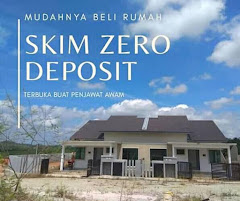How much would one need for retirement ?
Experts say this depends on the individual and his lifestyle. And how much he is willing to reduce consumption – to eat out less often, buy fewer things, live in a smaller house, drive less, drive a smaller car and travel less. The rule of the thumb, is managing on 60% of your last drawn pay.
If a family in Kuala Lumpur with two kids and two cars needs RM5,000 today, at retirement, expenses should go down to RM3,500.
Even based on this calculation, one would need RM747,000 if one were to live for 25 years after retirement, and RM806,200 for the next 30 years, factoring in the inflation and interest rates.
Going by statistics revealed in EPF's 2005 annual report, about 90% of EPF contributors have less than RM100,000 in their accounts. So sole dependence on one's EPF savings as a safety net is not good enough.
Assuming that one can live on RM1,000 a month, to survive for 25 years, one would still need a substantial RM300,000 and for 35 years, RM420,000.
A person should not start purchasing big assets like property or a house late in life as the danger is that once they have retired they may not be able to meet the instalment payment on it.
When you are in your late 40s, you should be winding down and not committing to high expenses to buy big things.
There are some cases where retirees have had banks auction off their houses because they could not meet the monthly loan payment.
There is also the problem of credit card temptation. There is a worrying trend that more and more younger people are becoming bankrupt as they are spending “tomorrow's money”. Which basically means these people are not saving or building their retirement nest.
Ideally, people should start saving from the time of conception; that way would be able to enjoy the magic of the compounding effect .
A noticeable trend is that while the younger generation is prepared to invest in new financial instruments, the older generation gravitates towards fixed deposits.
That is very risky because you would not be able to accumulate enough because the interest rates can't meet the inflationary rate and your money is getting smaller.
What people should do is to be more aggressive in their investment.
In investing, you should not be looking at the date of retirement but rather the date of potential death which is probably still another 21 years away after retirement.
The best way is, only keep about six months of your monthly expenses in the savings and FDs and put the rest in investment products that generate more income than the inflation rate.
A good private pension would help people in their retirement years. In developed countries, money put into savings for retirement is not taxable, neither is the profit from that investment.
When you retire, you can't take the money out in a lump sum either or you'd have to pay tax on it. This will force you to withdraw your money on a regular monthly basis for retirement because that's tax free.
Singapore has such a scheme, the voluntary Supplementary Retirement Scheme, which complements the Central Provident Fund (CPF). Such a scheme has not taken off in Malaysia for a number of reasons.
It would be a loss of revenue to the Government because people would not be paying taxes on money put aside for retirement. It would benefit only the rich and middle income group as the poor might not be able to afford it.
Perhaps it hasn't taken off too because the Malaysian economy is pretty dependent on consumer spending. And the Government wants you to spend.
There should also be an asset liquidation law in the country. It is puzzling that there are all sorts of incentives for asset accumulation, but none for liquidation.
An example of asset liquidation would be to reverse mortgage your house to the bank in return for a guaranteed monthly income until you die.
The asset would at the end of the day belong to the bank or insurance company. But in the meantime, the person has the right to continue to live in the house until death and get a monthly income too.
If they outlive the value of the house, the bank loses.
As our population ages and life expectancy increases, more thought must be given by both individuals and the Government on how to develop a culture of planning and saving for one's retirement.
Subscribe to:
Post Comments (Atom)













































































































1 comment:
good tips...
hope u also use this tips///
Post a Comment